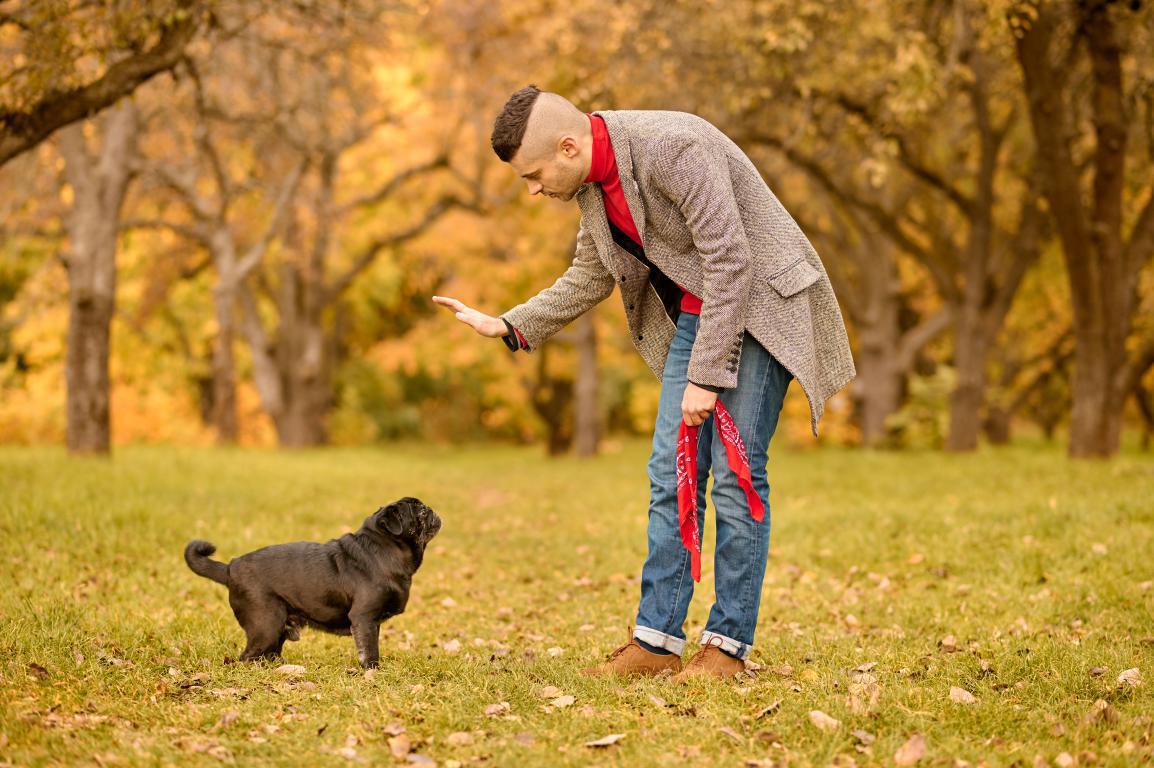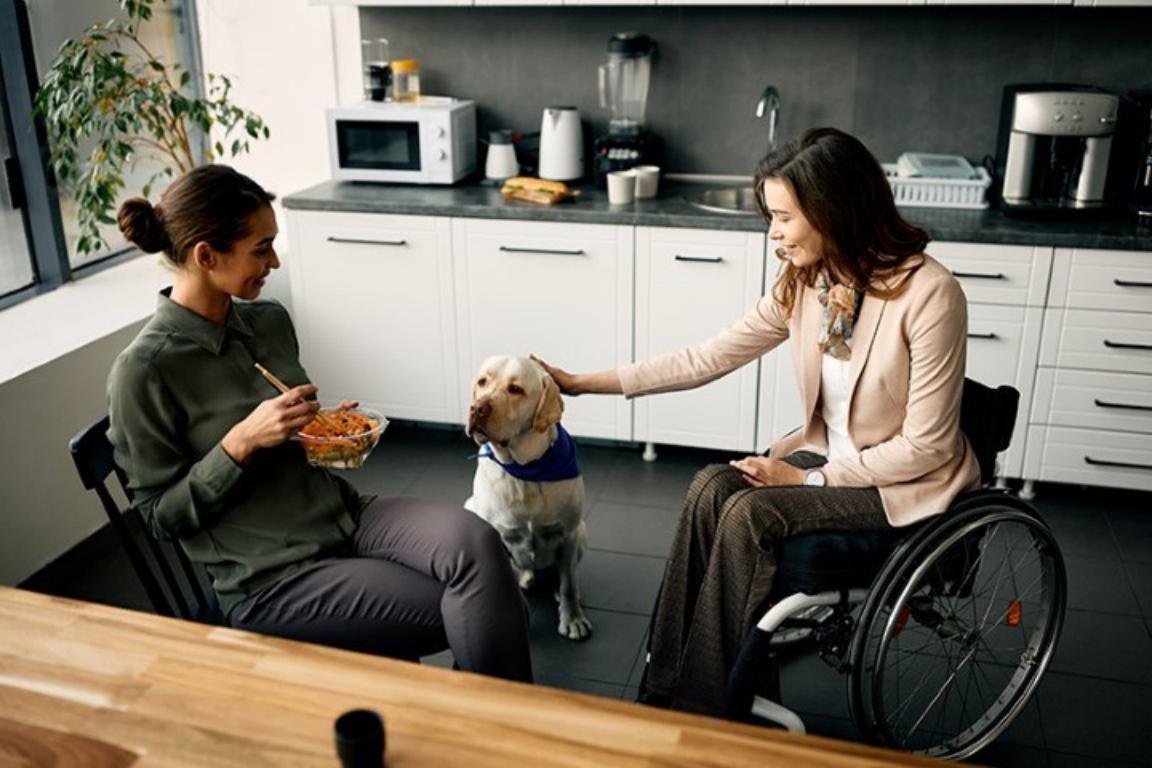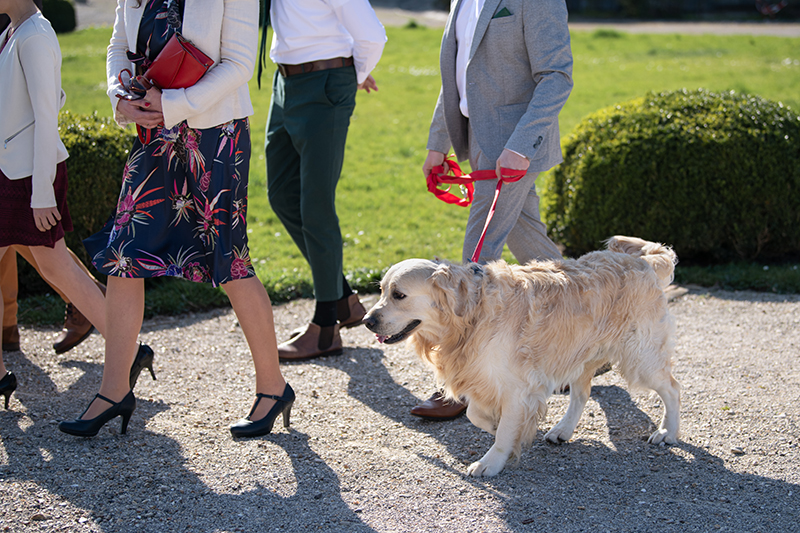Bio-degradable cards
Every card imaginable!
|
Bio-degradable cards Every card imaginable! Understanding Hearing Dogs and Your Rights as an Owner
Understanding Hearing Dogs and Your Rights as an OwnerTable of ContentsHearing loss can make everyday life feel isolating or unsafe, especially when important sounds go unnoticed. A hearing dog changes that by providing practical help and companionship. This guide explains what hearing dogs are, how they work, and the rights you have as an owner in the UK. It's based on current laws and guidance from organisations like Hearing Dogs for Deaf People and Assistance Dogs UK (ADUK). If you're reading this because someone close to you has hearing loss—or perhaps you do yourself—you might be wondering how a dog could make a real difference. Many people find that a hearing dog does more than just alert to sounds; it brings back a sense of security and connection to the world around them. This guide breaks everything down into clear sections so you can find what you need quickly. We'll cover the basics first, then move on to the practical side of getting a dog and understanding your rights. Whether you're just starting to explore the idea or you're ready to apply, the information here comes from reliable sources and reflects the situation in the UK as of 2026. 
What Are Hearing Dogs?If you're new to the idea, a hearing dog is a specially trained dog that helps people who are deaf or have severe hearing loss. These dogs alert their owners to important everyday sounds that might otherwise go unnoticed, like a doorbell ringing, a smoke alarm going off, or someone calling their name. In the UK, the main charity providing them is Hearing Dogs for Deaf People, which has trained thousands of these dogs since the 1980s. Hearing dogs do more than just practical tasks. Many owners find that having one reduces feelings of isolation and brings a real sense of companionship. The dog becomes a constant partner, helping with confidence in daily life. How Hearing Dogs Are Trained and SourcedMost hearing dogs start their journey young. Puppies often come from the charity's own breeding programme or are carefully selected from rescues and donations. Popular breeds include Cocker Spaniels, Labradors, Miniature Poodles, and Cockapoos because they tend to have the friendly, alert temperament needed for the work.
The whole process can take 18 months to two years, and the charity covers the costs through donations. The Different Types of Dogs AvailableNot every dog or owner needs the same level of support, so Hearing Dogs for Deaf People offers a few options. This means more people with hearing loss can benefit, even if a full public-access dog isn't the right fit.
Whichever type, the charity assesses each applicant carefully to find the best match. They also offer ongoing support after placement, including check-ups and advice. Hearing dogs aren't ordinary pets—they're skilled working partners. But the bond they form with their owners often feels just like family, making a big difference to safety, independence, and wellbeing every day. If this sounds like something that could help you or someone you know, the next sections cover how they work in practice and what rights come with ownership. 
How Do Hearing Dogs Help?A hearing dog's primary role is to act as your ears for important sounds you might not hear. They make gentle physical contact—usually a paw tap for smaller dogs or a nose nudge for larger ones—to get your attention, then lead you to the source of the sound. This simple but reliable system can make a huge difference to safety and independence at home. For danger sounds, the behaviour changes. The dog will lie down flat on the ground instead of leading you, signalling that something is wrong and you should take caution rather than approach. This has proved life-saving in real emergencies. Common Sounds Hearing Dogs Alert ToHearing Dogs for Deaf People tailors training to each person's needs, but there are several standard sounds most dogs learn. These are chosen because they're the ones deaf people most often worry about missing.
Training can extend to other household sounds if they're relevant to your life, like a fridge door left open or a digital timer for various tasks. Support in Public PlacesFully qualified hearing dogs (those wearing the burgundy jacket) also provide help outside the home. They might alert to someone calling your name from behind, an approaching vehicle, or other relevant noises that add awareness in busy environments. While they don't typically respond to general traffic or sirens like some overseas programmes, their presence often makes you more attuned to surroundings through their body language. This public support isn't just practical—it boosts confidence. Many owners feel safer navigating shops, streets, or public transport knowing their dog is watching out for key sounds. Beyond the alerts, hearing dogs offer companionship that tackles the loneliness hearing loss can bring. The partnership restores a sense of security, making everyday tasks feel manageable again. If you've been wondering whether this could help with specific sounds in your routine, the charity assesses each application individually to match the right level of support. 
The Difference Between Hearing Dogs and Other Assistance DogsIt's common for people to confuse hearing dogs with other types of assistance dogs, especially guide dogs, since both are highly trained working partners that support people with disabilities. The key difference lies in the specific needs they address and the tasks they perform. All accredited assistance dogs in the UK fall under the same broad legal protections, but their roles are tailored to different disabilities. Hearing dogs are trained specifically for people who are deaf or have significant hearing loss. They don't guide movement or retrieve items in the same way others do—their focus is entirely on alerting to sounds. Guide Dogs: Support for Visual ImpairmentGuide dogs are perhaps the most well-known type of assistance dog. They help people who are blind or partially sighted navigate the world safely.
Other Types of Assistance DogsAssistance Dogs UK (ADUK) is the coalition of accredited charities that train and provide most assistance dogs in the country. As of 2026, it has 14 member organisations, each specialising in different disabilities. Fully qualified dogs from these charities share the same public access rights.
What They Have in CommonAll these dogs—whether hearing, guide, mobility, or medical alert—are considered assistance dogs under the Equality Act 2010. This means owners have the same legal right to take their fully qualified dog into public places where pets are normally banned, like shops, restaurants, and transport.
Understanding these differences helps appreciate how each type of dog meets unique needs while offering the shared benefits of independence, safety, and companionship. If you're considering a hearing dog, knowing how it compares to others can clarify why it's the right fit for hearing loss specifically. The next sections dive into applying for one and the rights you'll gain. 
Getting a Hearing DogIf you're dealing with significant hearing loss and think a dog could help, the place to start in the UK is Hearing Dogs for Deaf People. This charity is the main accredited provider of hearing dogs and has been matching them with deaf people since the 1980s. They offer different types of support dogs depending on your level of hearing loss and lifestyle, and the whole service is free to recipients because it's funded entirely through donations. Many people worry about whether they qualify or how long it might take. The good news is that the charity works with a wide range of hearing loss levels and provides personalised advice right from the start. Even if a full assistance dog isn't the best fit, they can often suggest alternatives like sound support dogs or companion dogs. Who Can Apply?Hearing Dogs for Deaf People assesses each person individually, but there are some general guidelines to give you an idea.
The team is friendly and non-judgemental—they'll talk through your situation without obligation. Many applicants find this first chat reassuring because it helps clarify what's possible. The Application Process Step by StepGetting a hearing dog involves several stages, but the charity supports you throughout with a dedicated advisor.
The entire process from application to placement can vary, but waiting times depend on your specific requirements and available dogs. Some people wait months, others longer—your advisor will give a realistic estimate early on. Costs and FundingThere's no charge to you for the dog, training, equipment (like the burgundy jacket), or lifetime support. The charity covers everything through public donations, fundraising, and legacies. Training and supporting one dog over its working life costs around £40,000 to £45,000, which is why they rely on generous supporters. You are responsible for day-to-day costs like food, vet bills (beyond any issues covered by the charity), and insurance—similar to owning any dog. Some owners get help with these through benefits or local schemes. Why the Wait and Effort Are Worth ItPlenty of owners say the process felt thorough but straightforward, and the result transformed their lives. From gaining independence with sounds to enjoying the companionship that eases isolation, a hearing dog often becomes a true partner. If you're unsure, reaching out for that first conversation is the easiest next step—no commitment required. 
Your Legal Rights as a Hearing Dog OwnerIf you have a fully qualified hearing dog from an accredited charity like Hearing Dogs for Deaf People, you are protected under the Equality Act 2010. This applies across England, Scotland, and Wales, and similar protections exist in Northern Ireland under separate disability discrimination laws. Severe or profound hearing loss counts as a disability under the Act, meaning service providers must make reasonable adjustments to avoid putting you at a disadvantage—allowing your hearing dog to accompany you is one of these adjustments. How the Law Protects You and Your Dog
Where You Can Take Your Hearing DogYour dog, wearing its burgundy jacket, can accompany you almost anywhere the public is allowed, even where pets are normally banned. This includes:
Exceptions and LimitsExceptions are rare and must be justified on genuine health or safety grounds, not preferences or assumptions:
In practice, most access issues come from lack of awareness rather than valid restrictions. Carrying ID for your dog and politely explaining the law usually resolves concerns. Understanding your rights makes day-to-day life with a hearing dog much smoother, whether going shopping, travelling, or visiting public services. For personalised advice, contact Hearing Dogs for Deaf People or the Equality and Human Rights Commission (EHRC). 
Identification and Handling Access RefusalsUK law doesn’t require official ID or certification for your hearing dog to have public access rights under the Equality Act 2010. A fully qualified hearing dog from Hearing Dogs for Deaf People is automatically recognised because the charity is an accredited member of Assistance Dogs UK (ADUK). That said, carrying identification makes things smoother, helps staff understand the situation quickly, and prevents questions. Identification Provided with Hearing Dogs
Even if an assistance dog doesn’t have all these items, rights remain as long as the dog performs tasks to assist with a disability. The kit just makes interactions easier. What to Do If You’re Refused AccessMost refusals happen due to lack of awareness, not deliberate discrimination. Here’s a practical approach:
Refusals are decreasing as awareness grows. Having the booklet ready and explaining calmly usually resolves most situations, and many owners report smoother access after the first encounter. 
Further Support and ResourcesIf you've read this far, you probably have a good sense of how a hearing dog could fit into your life—or someone else's. Many owners describe the change as profound: from feeling cut off and cautious to enjoying more freedom and everyday connections. The practical alerts to sounds are vital, but the companionship often means just as much. You're not alone in this. Several organisations in the UK offer ongoing help, whether you're applying for a dog, already have one, or just need advice on living with hearing loss. Key Organisations to ContactHearing Dogs for Deaf People: This is the main charity training and providing hearing dogs in the UK. They offer lifetime support to partnerships, including follow-up visits, advice on any issues, and community events for owners. If you're thinking about applying or have questions about eligibility, they're the best first port of call. They also run Hearing Link services for broader emotional and practical support if a dog isn't the right option.
Assistance Dogs UK (ADUK): A coalition of accredited assistance dog charities, including Hearing Dogs for Deaf People. Their site has useful guides for owners (like access tips) and businesses (on welcoming assistance dogs). It's a reliable place for general information on rights and standards.
Equality and Human Rights Commission (EHRC): They provide detailed guidance on the Equality Act 2010, including your rights as a disabled person with an assistance dog. If you face discrimination or need clarification on the law, their resources and helpline can help.
Citizens Advice: Your local bureau offers free, impartial advice on a range of issues, including if you encounter access refusals or discrimination. They can guide you through complaints or next steps. Find your nearest one online or by phone.
Other Helpful PlacesMany owners also find support through online communities or forums run by the charities above. Hearing Dogs for Deaf People often connects new owners with experienced ones for peer advice. If hearing loss affects other areas like benefits, work, or technology, organisations like Action on Hearing Loss (now part of the Royal National Institute for Deaf People – RNID) have additional resources, though they don't train hearing dogs. Taking that first step—whether emailing a charity or reading more online—can open up options you might not have known about. The teams at these organisations are used to answering all sorts of questions and will talk things through without pressure. Published: 2 January 2026
© 2024 The Card Project Uk Ltd
VAT: 453 2087 06
|